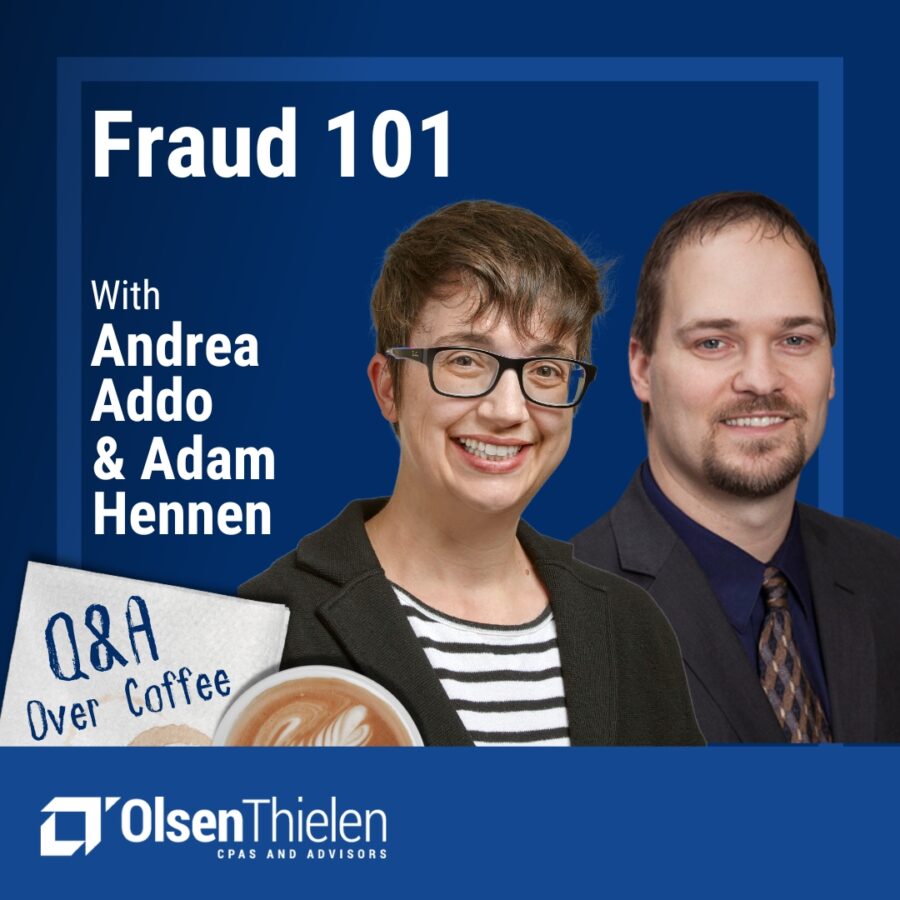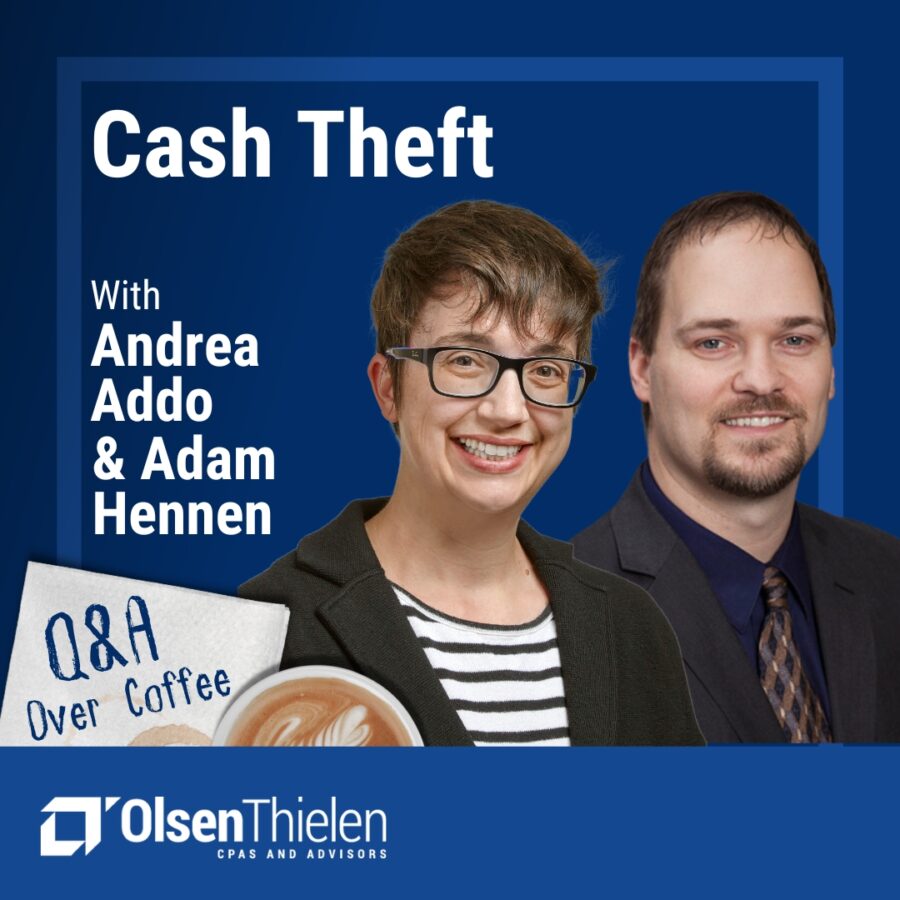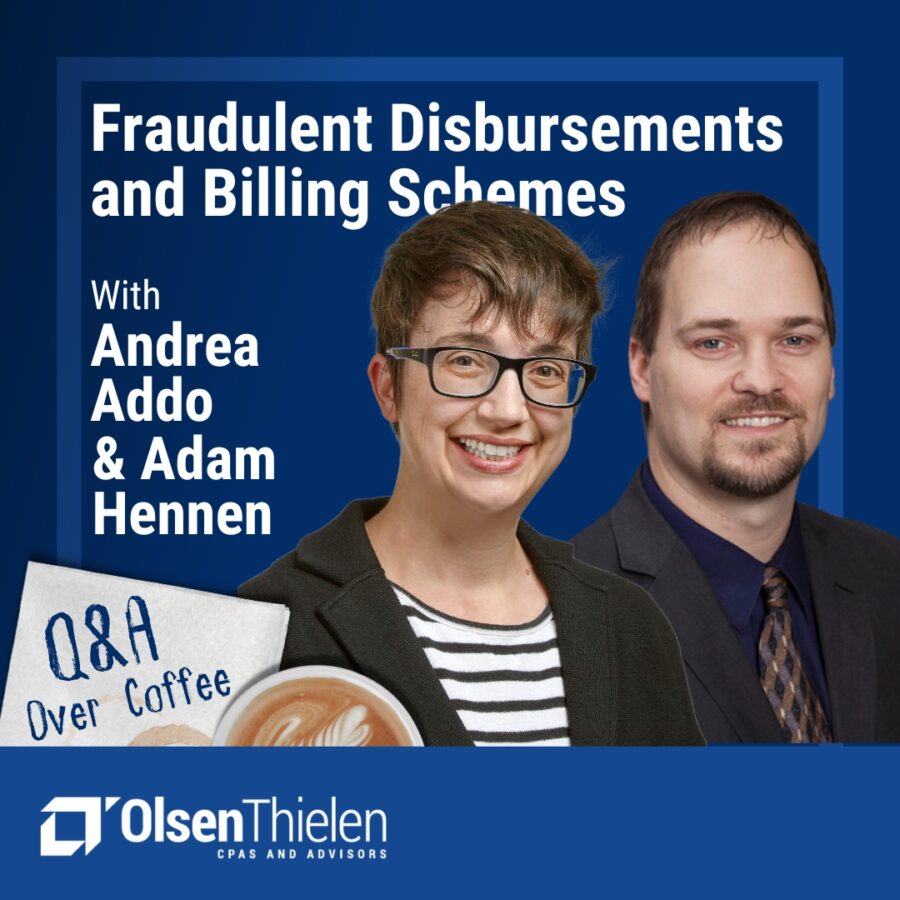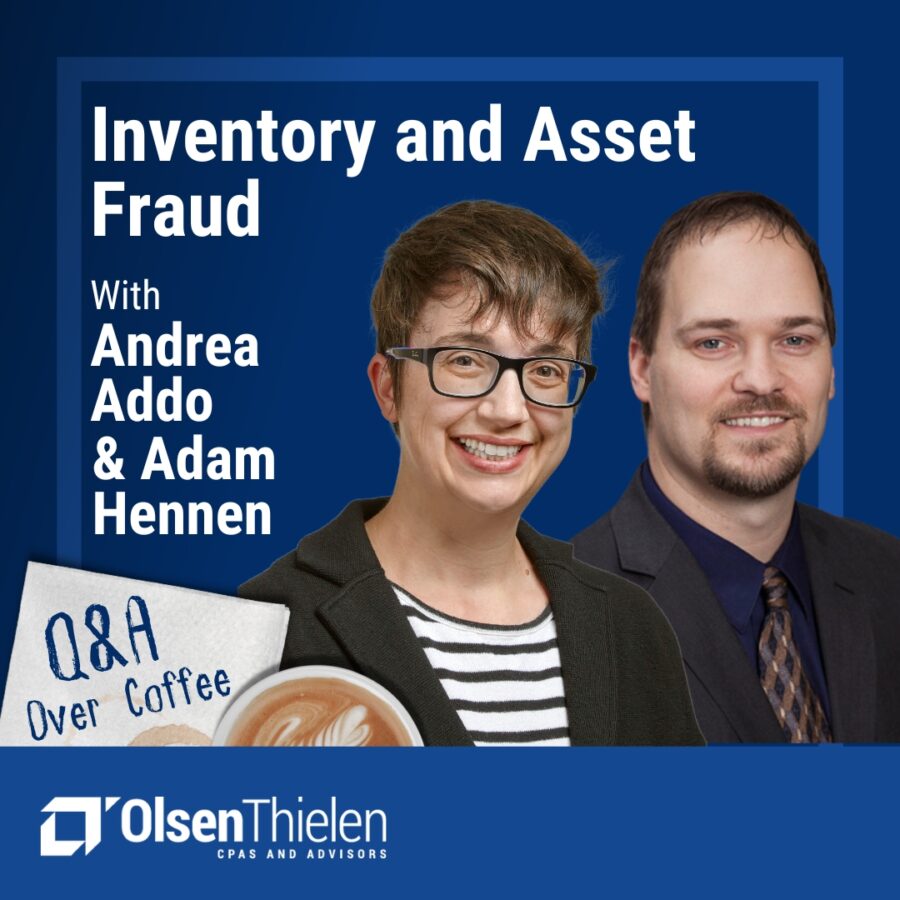Our Q&A Over Coffee Flights series are short episodes that break down complex topics into easy-to-digest segments that can be listened to individually, all together, or in any order. This Flight series explores Fraud with Olsen Thielen’s Certified Fraud Examiners Andrea Addo and Adam Hennen.

Fraud 101 with Andrea Addo and Adam Hennen
In the first episode of our Fraud flights series, we dive into the fundamentals of occupational fraud with our expert guests, Andrea Addo and Adam Hennen, both Certified Fraud Examiners. Together with our host, Val, they unpack the definition of fraud, the conditions under which it occurs, and how professionals like themselves get involved in detecting and investigating fraud cases.
Key Takeaways:
Defining occupational fraud: Intentional deception for personal gain
The role of Certified Fraud Examiners (CFEs) in fraud detection and litigation
Understanding the “fraud triangle”: Opportunity, pressure, and rationalization
How and when businesses engage fraud examiners
The vulnerability of small businesses versus large corporations

Cash Theft
In this episode we talk about one of the most common types of occupational fraud: cash theft. Our guests break down the mechanics of the most common schemes – skimming and cash larceny, how these crimes are committed, and the warning signs businesses should watch for.
We take a look at real-world examples, including a case where an accountant stole over $800,000 through an elaborate cash larceny scheme. Our experts also highlight how long these schemes can go undetected, emphasizing the importance of internal controls and regular audits.
Throughout the episode, listeners gain insights into how businesses can better protect themselves and the evolving techniques used to identify and prevent fraud.
Key Takeaways:
Understanding the different types of cash theft: Skimming vs. Cash Larceny
Real-life case study: An $800,000 cash theft scheme
How fraudsters manipulate accounting records to conceal theft
The role of audits in detecting fraud and their limitations
How long cash theft schemes typically go undetected
Best practices for businesses to prevent and detect cash theft

Fraudulent Disbursements and Billing Schemes
In the third installment of our fraud series, our guests dive deep into the world of fraudulent disbursements and billing schemes. This episode uncovers the various tactics fraudsters use to manipulate payment processes and drain company funds.
Andrea and Adam share real-world cases they’ve encountered, including an elaborate scheme where an employee submitted false reimbursement claims for canceled trips, resulting in over $100,000 in losses and other common methods perpetrators use.
Key Takeaways:
Fraudulent disbursement schemes are one of the most common forms of occupational fraud.
Simple controls, like verifying invoices and separating duties, can prevent substantial financial losses.
Fraudsters often start small and escalate their crimes as they gain confidence in their ability to avoid detection.

Inventory and Asset Fraud
For this episode, our guests focus on inventory and asset fraud, a common type of occupational fraud where employees misuse or steal company inventory or assets, often converting them into cash.
Inventory and asset fraud goes beyond simple theft. It occurs within the workplace and typically involves an employee exploiting their access to company resources. Examples include over-ordering supplies and diverting the excess for personal gain, as well as using company equipment for unauthorized side jobs.
Key Takeaways
- Red flags include increased inventory expenses, unusual shipping addresses, and discrepancies in inventory counts.
- Rationalization: Employees may justify misuse due to unclear policies or believing their actions don’t harm the company.
- This type of fraud can be prevented through conducting regular audits, monitoring inventory closely, and using visible security measures.
